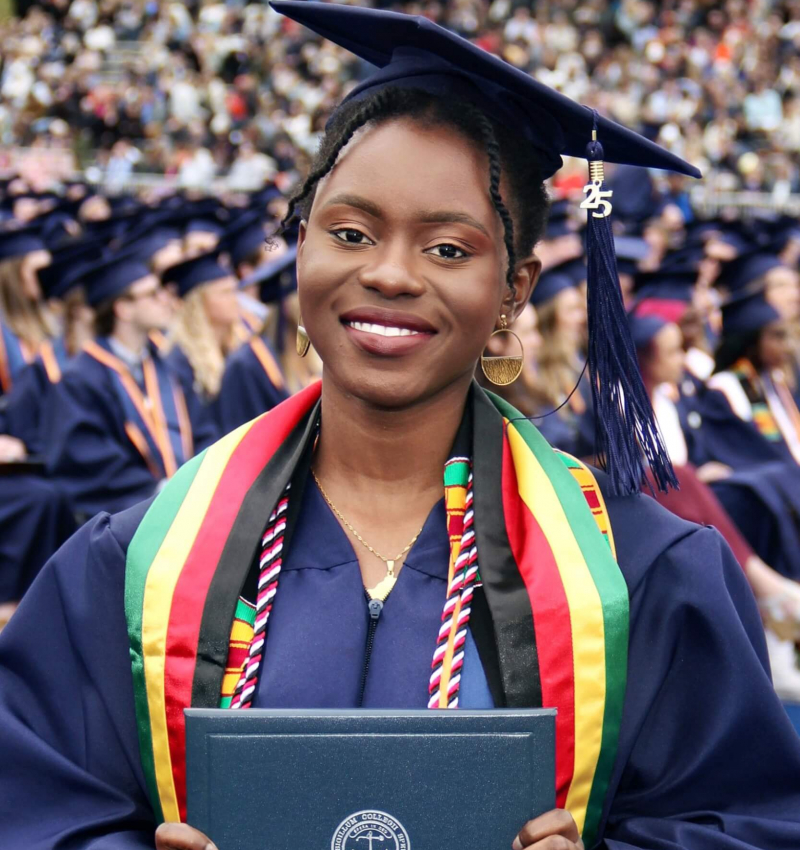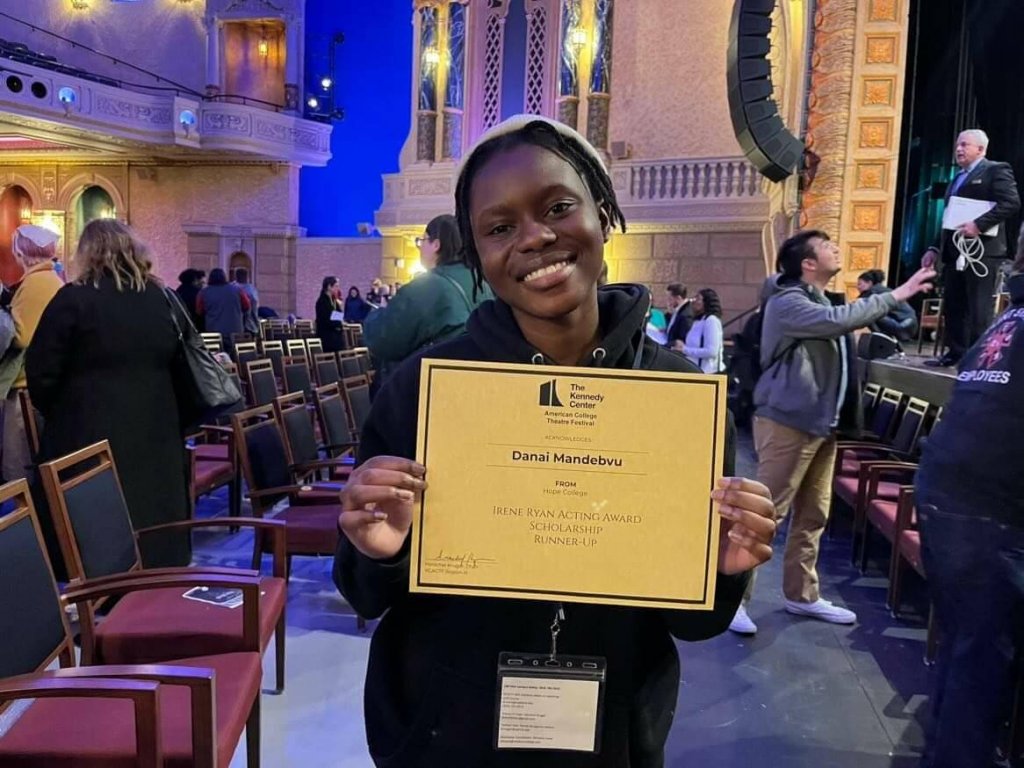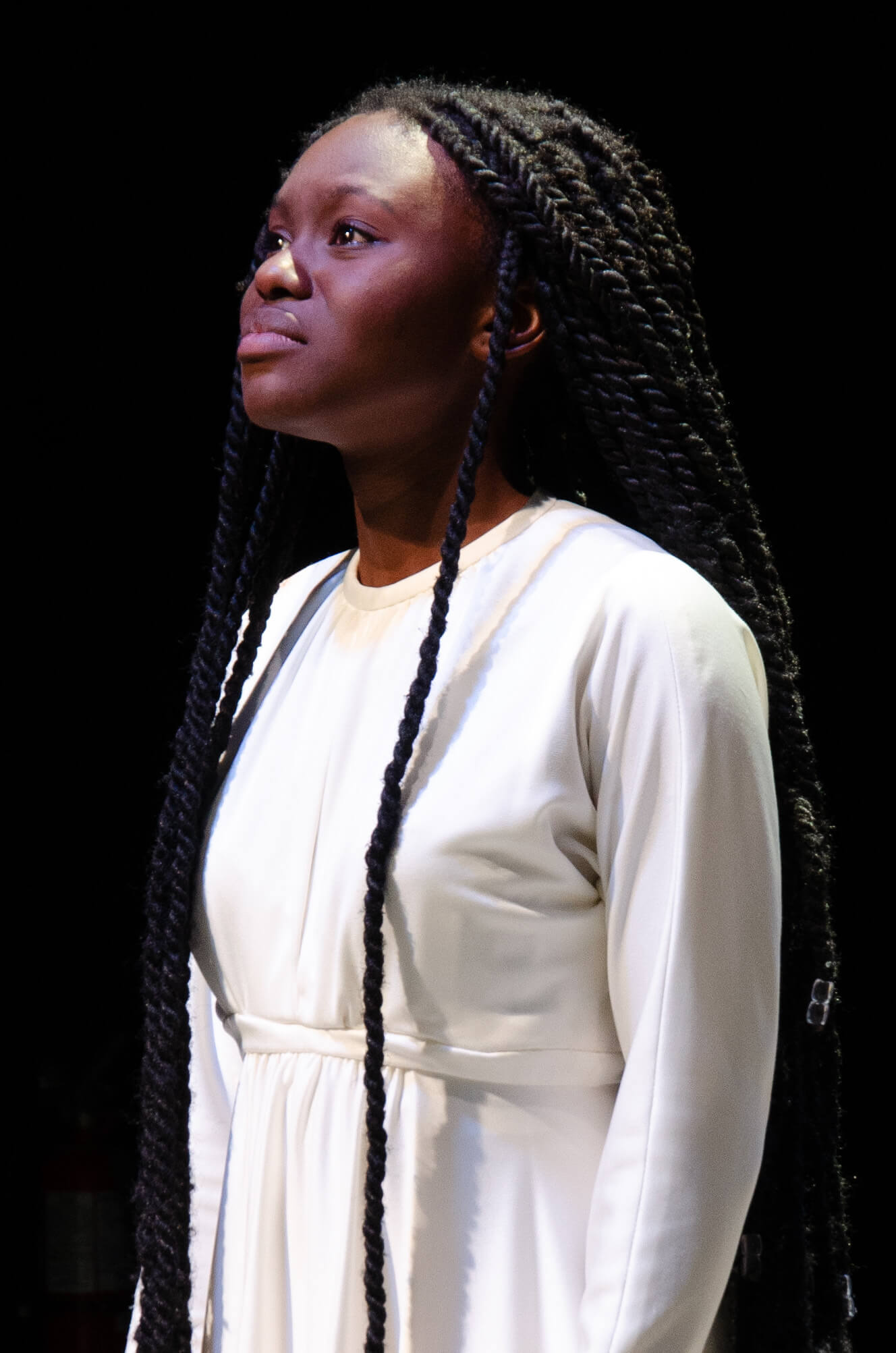Danai Mandebvu: Looking Back and Looking Forward

The Grace Scholarship Program is the result of a partnership between PVF and a donor to provide the critical gap funding necessary for bright, low-income Zimbabwean students who are a part of the US Achievers Program (USAP) to study at US and European universities. Each year we interview a few of the Grace Scholars to learn more about their background and experiences in college, as well as their plans for the future.
Once such scholar, Danai Mandebvu, has just graduated from Hope College in Michigan with a degree in Theatre and Global Studies and will be attending the prestigious Juilliard School this Fall for her Masters in Acting. Below is our interview with Danai as she reflects on her time at Hope College and looks towards her future!
How did being a Grace Scholar help prepare you for this next step?
My journey in storytelling and performance began in Zimbabwe, fueled by the belief, instilled by my parents, that anything is possible with dedication. Their sacrifices to educate my siblings and me despite economic and political instability taught me the power of hard work. This conviction led me to pursue a career in the arts, a path less traditional but deeply aligned with my passion.
Receiving a full tuition scholarship for college was a major hurdle overcome, but it was the financial assistance from the Grace Scholarship at Philanthropic Ventures Foundation that truly made my four-year journey at Hope College possible. This scholarship significantly eased financial burdens, allowing me to fully dedicate myself to my studies and personal growth. It gave me the freedom to explore my artistic interests, leading to my focus on acting, and enabled me to pursue invaluable opportunities beyond Hope College. These included transformative semesters studying theater in London through IES Abroad and interning and studying method acting at the Lee Strasberg Theatre and Film Institute in New York through the New York Arts Program. These experiences were crucial in solidifying my decision to pursue acting at the MFA level, ultimately preparing me for Juilliard.


What does success mean to you at this stage in your journey and are there any specific goals or dreams you’re hoping to pursue during your time at Juilliard?
At this stage in my journey, success means remaining deeply connected to my “why” while truly surrendering to the transformative process I know I’ll undergo as an artist at Juilliard. It means evolving into the artist who can authentically tell the rich stories I aspire to share and building the career I want to have.
During my time at Juilliard, I have several specific goals and dreams:
Forge strong connections within the artistic community, both within Juilliard and beyond, enriching my network and potential for collaboration.
Deepen my understanding of storytelling and explore how I can use my art to create meaningful impact.
Continue to develop my craft and artistic voice, fully embracing the rigorous training and diverse perspectives the institution offers.
Ultimately, my long-term dream is to establish a production company based in Africa and the US. This company would focus on telling stories of Africans and the African diaspora, promoting transparency, empathy, and offering a truthful look at a polylithic, complex, and wondrous people. My time at Juilliard will be a crucial step in gaining the skills, insights, and connections necessary to bring this vision to fruition.
Additionally, a significant part of my current success and journey involves ensuring I can actually attend Juilliard. I’m immensely grateful for the full tuition scholarship that came with my acceptance, and I’m currently fundraising the remaining $30,000 for living expenses through other scholarship applications and a GoFundMe. Seeing my various communities rally to support this cause has warmed my heart and reinforced the powerful role community plays in my journey. This experience has deepened my desire to tell stories that celebrate and make my communities feel seen.
Were there specific mentors, teachers, or experiences during your time as a Grace Scholar that made a big impact on you?
My time as a Grace Scholar was profoundly shaped by several impactful mentors, teachers, and experiences. Upon arriving at Hope College, the liberal arts environment allowed me to truly discover my artistic direction. While I always loved stages, music, and stories, participating In my first theater production, Sarah deLappe’s The Wolves, in a lead role, significantly shifted my focus to acting. I found it to be an artistically fulfilling and challenging art form that I was eager to master. Unlike my high school exposure, which was more improvisational, college showed me the depth of training and techniques available in acting, aligning my ambition with my creativity.
I was fortunate to tap into a community that fostered my growth and experimentation as an artist. Productions like Shakespeare’s The Winter’s Tale and a devised piece called The Boy Who Hates Everything further honed my skills. The Boy Who Hates Everything even provided the exciting opportunity to perform at the Kennedy Center of American College Theatre Region 3 Festival, showcasing our work to hundreds of other theater enthusiasts. I also competed in the festival’s Irene Ryan Acting Scholarship Competition, reaching the finals twice and even earning a runner-up title. Throughout these experiences, my advisor, Michelle Bombe, was an amazing support system, encouraging every dream I voiced from the very beginning of my college journey.
My experiences expanded beyond the college setting, notably during my time in London where I had classes at the Royal Academy of Dramatic Arts (RADA), walking the same halls as one of my artistic heroes, Cynthia Erivo. There, my tutors, Marina Calderone and Colin Elderwood, profoundly impacted me with their infectious passion for theater, warmth, and encouraging spirits. Marina, in particular, helped me recognize and embrace my full potential. Similarly, Dori Sullivan, who oversaw my work at the Lee Strasberg Theatre and Film Institute in New York, consistently offered encouraging words and support. These individuals and experiences not only fostered my artistic growth but also connected me with new communities and exposed me to diverse perspectives, all of which were vital in my journey.
What is your “why”?
My “why” is deeply rooted in my personal history and cultural identity. Many people in my community were hesitant about my desire to pursue a career in the arts, not just due to the general uncertainty of creative fields, but also because of deeper historical context. I was fortunate to grow up believing I could accomplish anything, a privilege my parents and grandparents didn’t have. Generations before me faced significant academic and professional restrictions due to colonial rule in Zimbabwe. My grandfather was one of the lucky few that went on to higher education and became a teacher as one of the very few career avenues open to native Zimbabweans while many others were limited subsistence farming and blue-collar work.
My parents’ generation was implicitly and explicitly encouraged to pursue “safe” careers like engineering, medicine, or law—paths that, while representing a form of success, were defined by external forces. Part of choosing my passion was embracing a privilege they didn’t have: the freedom to dream and make that dream a reality. The path I’ve chosen is about forging a way to tell their stories as well as my own. While these are fundamentally Zimbabwean and African stories, my identity has expanded significantly since leaving my home country four years ago. My art now reflects this broader perspective. I want to tell stories about transitions and the diaspora, about people who understand what it means to live in the “in-between” and straddle identities—between home and opportunity, blood and chosen family, or childhood and future. Being a Grace Scholar was foundational in setting me on this path of self-reflection and identity expansion.






